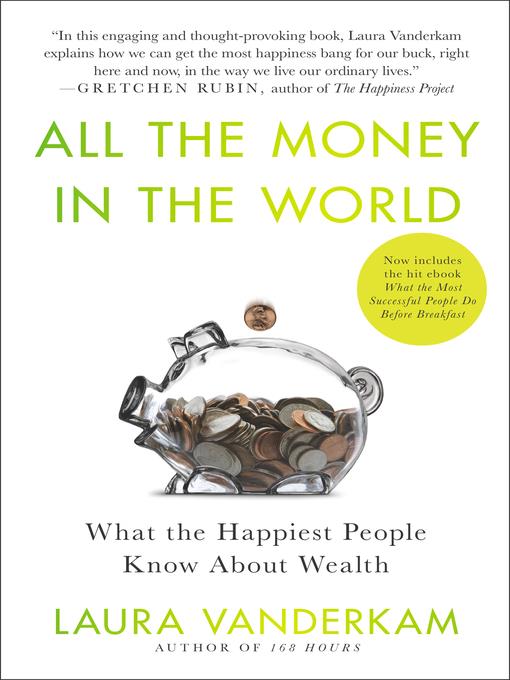
All the Money in the World
What the Happiest People Know About Getting and Spending
کتاب های مرتبط
- اطلاعات
- نقد و بررسی
- دیدگاه کاربران
نقد و بررسی

November 28, 2011
Money is a powerful, complicated thing, and our beliefs about it—and behavior around it—are muddled, says Vanderkam (168 Hours). To become more mindful about our choices, she writes, we should explore the link between money and happiness, and use money to optimize our well-being and the well-being of people we care about. We need to stop thinking about money as something evil or soulless, or as a point of competition with others. Vanderkam explores the ways in which thinking more cogently about money’s role in our lives can bring us peace, and asks: if you had all the money in the world—not literally, but all you wanted—what would you change about your life? She walks readers through rethinking retirement, eschewing keeping up with the Joneses, filling time with favorite activities, giving to charities, and, overall, figuring out how to create the life they want. Vanderkam’s gracious, levelheaded polemic will give readers some much-needed sanity around this difficult topic; as she observes: “If money can’t buy happiness, perhaps we’re not spending it right.” Agent: Emilie Stewart, Emilie Stewart Literary Agency.

January 1, 2012
Vanderkam (168 Hours: You Have More Time Than You Think, 2010, etc.), a member of the USA Today Board of Contributors, takes a fresh look at financial planning. The author debunks the traditional approach to budgeting in which fixed percentages are allocated to predetermined categories that prioritize the basics such as housing and food. According to Vanderkam, the trick to remaining financially solvent without sacrificing is not to scrimp and save on the small items--the lattes and occasional nights out. She offers a road map about how this might be accomplished and substantiates her claim that "the resources we already have or can obtain can do more for our happiness than we think." A key tenet is that our happiness is not based on the accumulation of big-ticket items--diamond engagement rings, super-sized homes and cars--but on the accumulation of everyday pleasures, especially those activities we share with friends and family. Vanderkam provides thought-provoking examples of how it's possible, even in a depressed economy, to explore new entrepreneurial opportunities to supplement income as an alternative to penny-pinching self-denial. She also warns of the pitfall inherent in saving for retirement--not only because of the effect that market volatility can have on a nest egg, but also the possibility of inflation. She suggests that it is better to find rewarding work than plan for early retirement, and warns of the dangers of becoming entrapped by the "hedonic treadmill" of increased expectations and spending more for less. Quirky, insightful and enjoyable--a welcome corrective to the typical advice from economists and financial managers steeped in the "dismal science."
(COPYRIGHT (2012) KIRKUS REVIEWS/NIELSEN BUSINESS MEDIA, INC. ALL RIGHTS RESERVED.)

























دیدگاه کاربران